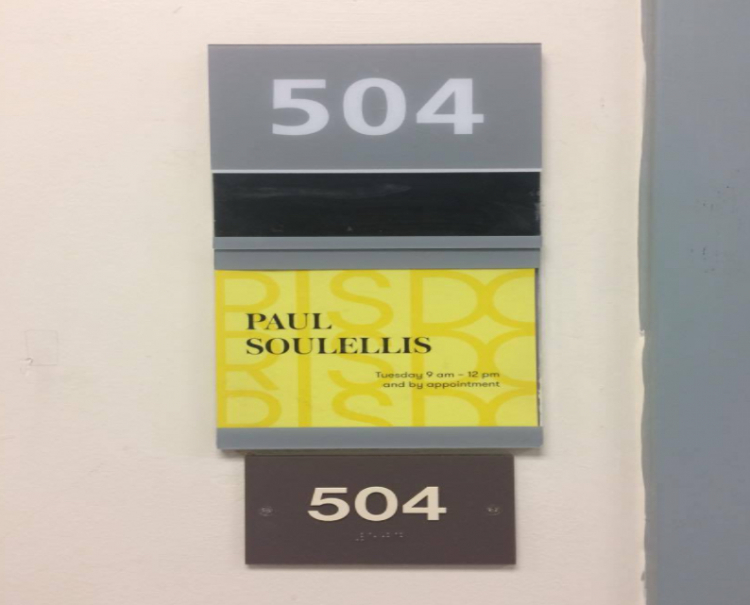Siri Can Say My Name; Why Can’t You?

I loudly gasped in the backseat of an Uber when the turn-by-turn navigation instructed the driver to “drop Dwyette off on the left” and pronounced my name correctly. It was a moment of vindication. I felt like I had won a long-fought argument; it felt like my identity was restored. Throughout my life, I have had professors, classmates, colleagues, and managers “butcher” my name in the workplace and learning institutions. I questioned, “was this an attack on my identity?” Your name is your identity. Every time you mispronounce my “hard-to-pronounce” name you rob me of my identity and diminish my place in the world.
Popoai Tanuvasalole, a fellow first-year graduate student at AUP, and I bonded over our non-American names being “butchered” throughout our lives. “Your name is your identity,” says Popoai. As we ordered at Starbucks, I overheard her place her order for a pumpkin spice latte, but when the barista asked for a name, she said “Camron.” A learnt skill of having a non-cookie-cutter name is being able to assume a new identity at any given moment. At Starbucks, I’m Dee-Dee, Amber, or sometimes Britney. Popoai says that she uses her brother's name when placing orders at restaurants because “it isn’t worth the effort.”
Growing up with an uncommon name, I sometimes felt shy about introducing myself. The constant dread of entering a new school, new grade, or new social setting, and repeating my name continuously was met with:
“Do you have a nickname?”
“I am never going to be able to say that!”
“Wow, that’s ... different?”
Image Credit: Dwyette Turnquest
However, you find coping mechanisms. Throughout my life until the end of my undergraduate degree, I solely introduced myself by my nickname “Dee Dee", or I provided my given name “Dwyette” and shortly followed it up with “but you can call me ‘Dee Dee.’” I felt ashamed of my name. It felt like a burden to constantly correct, repeat, and bear the cross of a constant attack on my identity. Our names make up a big part of our identity. Popoai shared that she believed her adolescent identity crisis stemmed from her struggles with her name. “Learning to pronounce someone’s name correctly is a sign of respect,” she says.
The act of continuously mispronouncing a name, especially that of a person of color (POC) is a sign of micro-aggression. Being a woman of color who has primarily attended predominantly white institutions, like AUP, my name is constantly being misspoken. This creates another layer of social and psychological turmoil. “Hard to pronounce” names contribute to feelings of anxiety beyond the school setting. In the workplace, it can even be detrimental to career prospects. In Ruchika Tulshyan’s article for the Harvard Business Review, “If You Don’t Know How to Say Someone’s Name, Just Ask”, she says that “difficult to pronounce” names are less likely to receive callbacks for interviews. In addition, having your name mispronounced in the workplace makes people feel unwelcome and uncared for.
Continuously “butchering” someone’s name, especially that of a POC, says more about your character than it says about the difficulty of their name. Living in my skin and bearing a name deemed unconventional is another reminder that I am a minority who does not belong. As I matured, I no longer felt shame or embarrassment for others’ shortcomings. Instead of seeing my nickname as a coping mechanism, I saw it as an act of rebellion. If you won’t pronounce my name, phonetically spelled duh-why-ET, correctly, your tongue no longer has the privilege to bear the weight of its beauty. Popoai, who also shared the feeling of embarrassment of her name growing up,has also come to terms with her name. Hers is a cultural and family name, literally translated as “Coconut Tree”, which means “Tree of Life” in Samoan culture. She sees her name as a connection to her family.
Caroline Sjerven, who completed her undergraduate and is now pursuing graduate studies at AUP, also feels your name is a direct connection to your family. Her “hard to pronounce” name is her surname. Your surname is a literal connection to your family, which also contributes to your identity. Caroline shared a recent moment of dread at an AUP event where she was announced on stage. She rushed to the stage to save herself from the awkwardness of repeatedly screaming the correct pronunciation of her name. She believes that a continued mispronunciation of your name stems from a lack of caring. Her name is Norwegian, which is where her family is from; but you do not need a history lesson about someone’s name to not offend their identity.
An overwhelming consensus for why people butcher “hard-to-pronounce” names is a lack of caring, and if my name is my identity, then you don’t care about my identity. However, to quote Pranav Jani “You can’t butcher my name (You’re not that powerful).” At the same time, next time you are faced with a “difficult-to-pronounce” name, acquaint yourself with the name, because there is a person behind the name: a co-worker, friend, colleague, classmate, or student.








